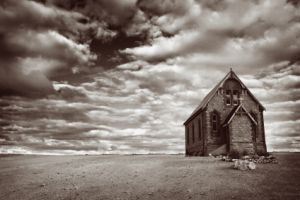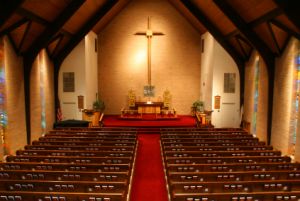 With the recent surge in efforts to roll back advances in women's reproductive rights and marriage equality for gays and lesbians, it's easy to believe the United States is becoming more religious than ever. However, a new survey by the Pew Research Center casts doubt on this assumption. According to the survey, Americans are gradually becoming less religious, and this change is being spearheaded by younger generations, particularly the millennials. An important question arises: what will be the role of ULC ministers and their churches twenty-five, or even fifty, years from now?
With the recent surge in efforts to roll back advances in women's reproductive rights and marriage equality for gays and lesbians, it's easy to believe the United States is becoming more religious than ever. However, a new survey by the Pew Research Center casts doubt on this assumption. According to the survey, Americans are gradually becoming less religious, and this change is being spearheaded by younger generations, particularly the millennials. An important question arises: what will be the role of ULC ministers and their churches twenty-five, or even fifty, years from now?
The Pew Research Center Values Study looked at trends in religiosity from 1987 to 2012 in several categories: sex, race, age, generation, education, income, religious affiliation, and political party. Participants were asked whether they agreed or disagreed with several religion-specific statements, including "Prayer is an important part of my daily life," "All will be called before God on Judgement Day to answer for our sins," and "I never doubt the existence of God." Attitudes about other social values often related to religious beliefs were also measured. Participants were also asked whether they agreed with the statements that school boards should be allowed to fire homosexual teachers, women should return to their traditional roles in society, and women get fewer good job opportunities than men.
 The results are not terribly surprising, and they confirm many assumptions about differing attitudes toward religion and closely related issues like the rights of women and gay people. Women tend to be more religious than men, but they also tend to be more liberal than men. Men are more likely to agree with the statements that school boards should be allowed to fire gay teachers and that women have as many good job opportunities as men. Meanwhile, better educated people are also more liberal than less educated people, and they are the least religious. People with university degrees were more likely to doubt the existence of God and less likely to pray than people with only high school degrees or less. Age and generation made a difference too: millennials and people aged 18 to 29 showed the least religiosity of all generations and age groups--they were also more likely to be sympathetic to the plights of women and LGBT people.
The results are not terribly surprising, and they confirm many assumptions about differing attitudes toward religion and closely related issues like the rights of women and gay people. Women tend to be more religious than men, but they also tend to be more liberal than men. Men are more likely to agree with the statements that school boards should be allowed to fire gay teachers and that women have as many good job opportunities as men. Meanwhile, better educated people are also more liberal than less educated people, and they are the least religious. People with university degrees were more likely to doubt the existence of God and less likely to pray than people with only high school degrees or less. Age and generation made a difference too: millennials and people aged 18 to 29 showed the least religiosity of all generations and age groups--they were also more likely to be sympathetic to the plights of women and LGBT people.
The United States is gradually becoming less religious, but what are the implications of these findings for churches like the ULC Monastery? At least two observations can be made. As religion declines, ministers ordained online and the churches they lead will have to adapt to the new social landscape. The new church will be a nondenominational church founded on new, modern-day principles which address modern-day concerns, and this means opening up to traditionally marginalized groups like atheists, agnostics, and those who simply describe themselves as spiritual but not religious. But we will also need to address discrepancies in attitudes about sex roles and sexual minorities. Although men tend to be more secular than women, they still lag behind in their commitment to achieving social equality for women and sexual minorities.
The Roman Catholic Church and others are seeing grassroots challenges to their most fundamental traditions. If churches wish to remain relevant, it is time for them to find a new vision.
Sources:


0 comments